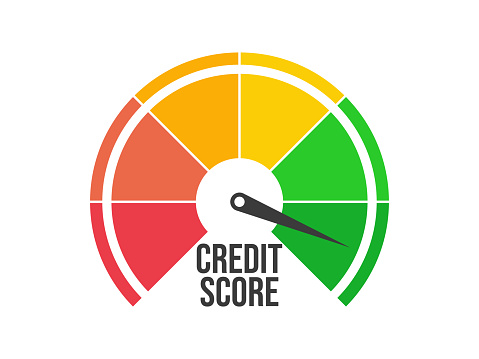Are you a student considering taking out a loan to pay for college? With so many different loan options out there, it can be difficult to choose the right one for you.
In other not to fall for cheap loan scams and getting reaped all of your effort and money, you need to stay on the safe side.
By so doing, you get a chance of getting approved for legitimate student loan without falling for any scam.
In this blog post, we’ll look at private and federal student loans and help you Choose the Right Student Loan for You.
We’ll also discuss factors like interest rates, loan terms, and repayment options, so you can make an informed decision about the loan that’s right for you.
Determine your needs

When it comes to deciding what type of student loan is right for you, it’s important to take a step back and assess your individual needs.
Consider the total cost of your education, your current financial situation, and the amount of money you will need to borrow in order to fund your studies.
If you’re just starting out with college expenses, you may want to start by looking into federal student loans.
These are loans that are funded by the government, and they typically come with more flexible repayment options than private loans.
Additionally, federal loans often have lower interest rates and more generous deferment or forbearance options. However, federal loans may not cover all of your educational costs.
On the other hand, if you need additional funds beyond what a federal loan can provide, then a private loan may be a good choice for you.
Private student loans are issued by banks, credit unions, and other lending institutions, and they generally have more stringent eligibility requirements and higher interest rates than federal loans.
Keep in mind that private loans also don’t typically offer any kind of deferment or forbearance options, so you’ll be responsible for making payments on time even if you’re unable to attend school due to unforeseen circumstances.
Once you’ve taken stock of your financial needs, you’ll be better prepared to make an informed decision about which type of loan is right for you.
Consider all your options
When it comes to student loans, it’s important to consider all your options before making a final decision. There are two main types of student loans: private and federal.
Private student loans are offered by banks, credit unions, and other private lenders. They usually have higher interest rates than federal loans and may require a credit check and a cosigner.
Private student loans also generally have less repayment flexibility than federal loans, so it’s important to make sure you understand the terms and conditions before signing up.
While Federal student loans are offered through the government, with lower interest rates and more flexible repayment terms.
Federal student loans don’t require a credit check or a cosigner, and may also offer more attractive repayment options such as deferment, forbearance, and income-based repayment plans.
When deciding between private and federal student loans, it’s important to research both options carefully to make sure you’re getting the best deal for your needs.
Also keep in mind that it may be possible to combine the two types of loans, allowing you to take advantage of the benefits of both.
Compare rates and terms

When it comes to choosing the right student loan, it’s important to compare rates and terms before committing to any loan. Private student loans generally offer fixed or variable rates, depending on the loan product and lender.
Fixed rates are set for the life of the loan, while variable rates can change over time. Federal student loans, on the other hand, have a set interest rate set by the government each year.
It’s also important to review the terms of your loan, such as repayment schedules and fees. Private student loans may offer more flexible repayment terms, while federal student loans typically come with more rigid repayment plans.
Private student loans may also have additional fees such as origination fees, application fees, and late payment fees, so make sure you understand all the fees associated with the loan before signing on the dotted line.
In addition to comparing rates and terms, it’s also important to consider the potential benefits of private versus federal loans. Private student loans may offer additional features such as cosigner release, loan consolidation, and deferment or forbearance options.
However, federal student loans generally have better borrower protections, including access to income driven repayment plans and loan forgiveness programs.
Ultimately, it’s important to weigh all your options before making a decision.
Read the fine print
When it comes to student loans, it’s important to understand exactly what you are signing up for. You should always read the fine print before you take out a loan. This includes federal and private student loans.
Federal student loans have specific terms and conditions that must be followed. Be sure to read the loan agreement carefully, as these can have an impact on your repayment plan.
Make sure you understand the repayment options, interest rates, grace periods, and any fees associated with the loan.
Private student loans vary from lender to lender, so make sure you read the details of each loan carefully. Know the interest rate, repayment period, repayment methods, and other fees associated with the loan.
Some lenders also have special repayment options or discounts for certain groups of borrowers. Make sure you fully understand what these benefits are before signing any paperwork.
No matter which type of loan you choose, make sure you read the fine print before signing anything.
Knowing what you are agreeing to can help ensure that you are making the best decision for your financial future.
Borrow only what you need

When it comes to student loans, it’s important to remember to borrow only what you need. Taking out too much can be overwhelming and could make it more difficult to pay off your loan in the future.
Do your research and try to estimate how much you will need for tuition and other costs associated with school.
If you are considering private student loans, be sure to review the loan terms carefully. Private student loans have higher interest rates and stricter repayment terms than federal student loans.
If you decide to take out a private loan, be sure you understand the repayment requirements and what happens if you miss a payment or cannot make your payments.
Bottom Line
Considering the kind of loan you want, reading your preferred loan fine prints and comparing loan interest etc, are few of many ways to stay safe while choosing the right loan for you.
For both federal and private student loans, remember that any amount that you borrow is added to your total debt load.
Borrow only what you need and never take out a loan if you are not certain that you will be able to make regular payments on time.






